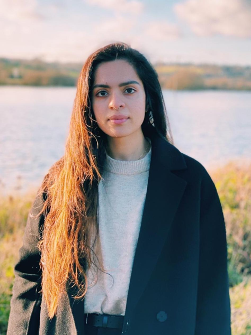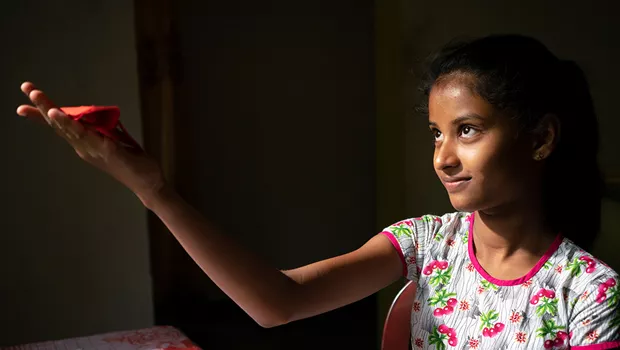Meet Prashanti Aswani, director of She Creates Change: Yashika from Nexus Studios
September 23, 2024
Room to Read’s soon-to-be-released film, She Creates Change, would not have been possible without an incredible all-women team of directors, animation artists, voice actors, composers, producers and writers curated by BAFTA-winning entertainment company, Nexus Studios. Each of these talented women brought a unique and diverse perspective to each film, helping bring the stories of six young women from Room to Read’s Girls’ Education Program to life.
Over the coming months, we’re excited to give you an inside look at some of the people behind the project. Today, we’re thrilled to introduce Prashanti Aswani, an animation director who led the production of Yashika’s short film, which tells the story of a girl from India who used karate to build her self-confidence.

 Prashanti holds a bachelor's degree in illustration from the Rhode Island School of Design and a master’s degree in narrative animation from the Royal College of Art. Her career began at The Mill in Chicago as a junior designer where she worked alongside incredible animators. She then continued her career as a motion designer in a production studio in Singapore before diving into her independent career as a freelancer.
Prashanti holds a bachelor's degree in illustration from the Rhode Island School of Design and a master’s degree in narrative animation from the Royal College of Art. Her career began at The Mill in Chicago as a junior designer where she worked alongside incredible animators. She then continued her career as a motion designer in a production studio in Singapore before diving into her independent career as a freelancer.
Born in Indonesia to an Indian family, growing up in Estonia and having lived in different parts of the world, Prashanti has experienced much uncertainty about her identity — an uncertainty that is strongly reflected in her work.
Hear Prashanti’s story in her own words below.

My name is Prashanti Aswani. I was born in Indonesia, but my family very soon after moved to Estonia where we lived for eight years.
Preschool was my very first memory of realizing I was different. I didn’t speak the language, I didn’t eat the same food, I didn’t have white skin. Being one of the handful of brown kids in our entire school made heads turn at every little thing. I have memories of not being able to change into my ballet costume in front of the other kids because I knew my body looked vastly different. I remember being much hairier than all the white males in my class. Needing an extra half an hour just to brush through my thick tangle of hair after gym class and then quickly hiding my mess of a hairbrush into my bag so no one saw. Making friends was difficult. As a result, I spent most of my time at home alone where I drew and drew and drew.
When I moved to [the United States] for my bachelor’s [degree], I fell in love with oil painting and spent two years painting the female body. I became almost obsessed with the folds, the curves, the stretch marks, the wrinkles; finally living away from home, I realised my work began revolving around all the things I was taught to hide. My very first post on Instagram was a painted half nude self-portrait and it was what caused the very first of the many conversations we had in my family about brown skin representation, body positivity and repression within our society.
My experiences regarding race, immigration and the female body are the biggest influences in my work. I want to represent the underrepresented and to voice those that never belonged.
What really stood out to me about Yashika’s story is the way she manages to harness her emotions through an act and performance [that is] so physical. She takes something she was taught to be a form of physical self-defence and turns it into something she uses to manage her mental well-being.
For a [young] woman to practice karate in a country where there is a highly negative perception associated with women and sports is a great portrayal of her passion, boldness and perseverance. The way Yashika speaks up against all those discouraging her from practicing a "man’s sport" is immensely inspiring.











